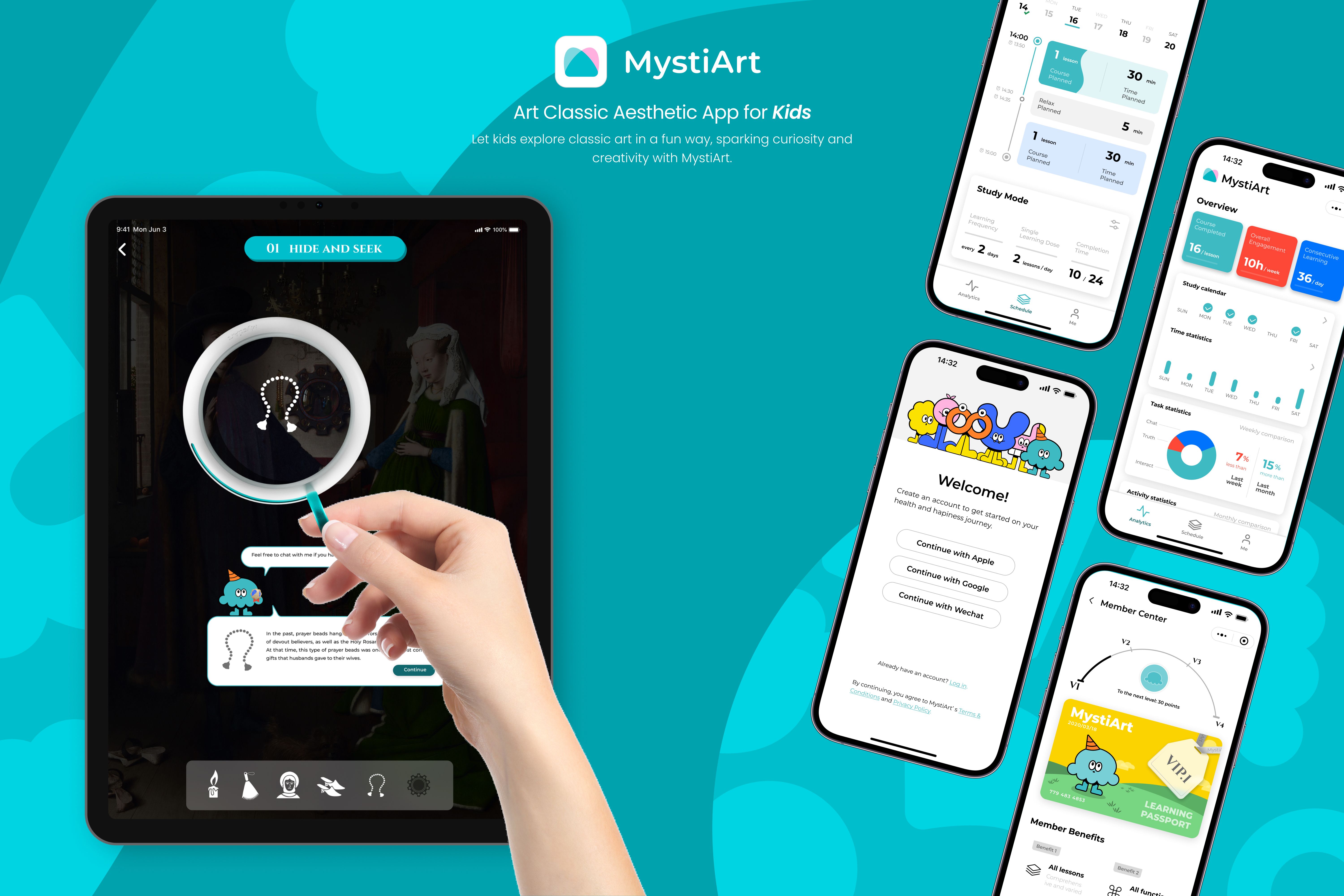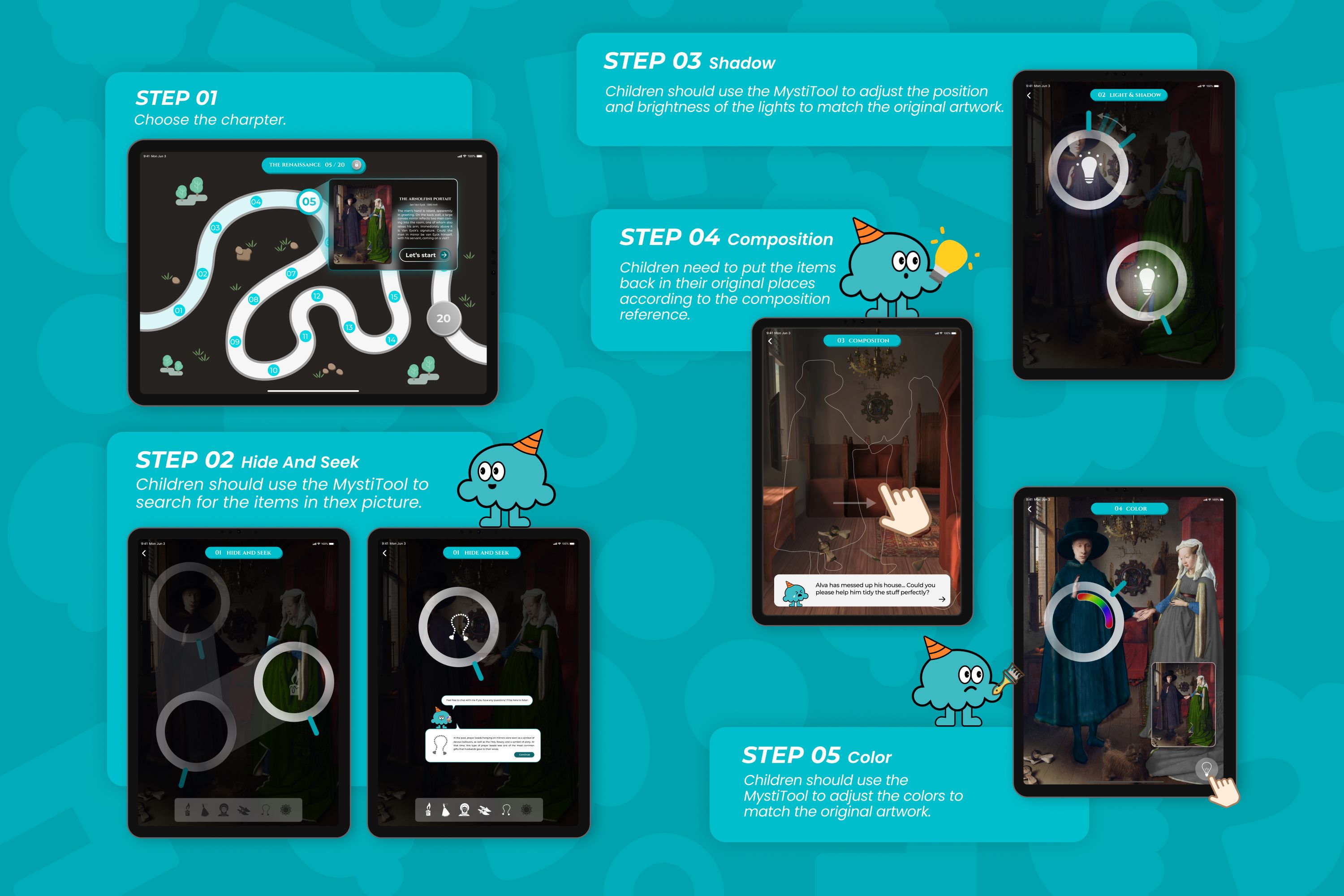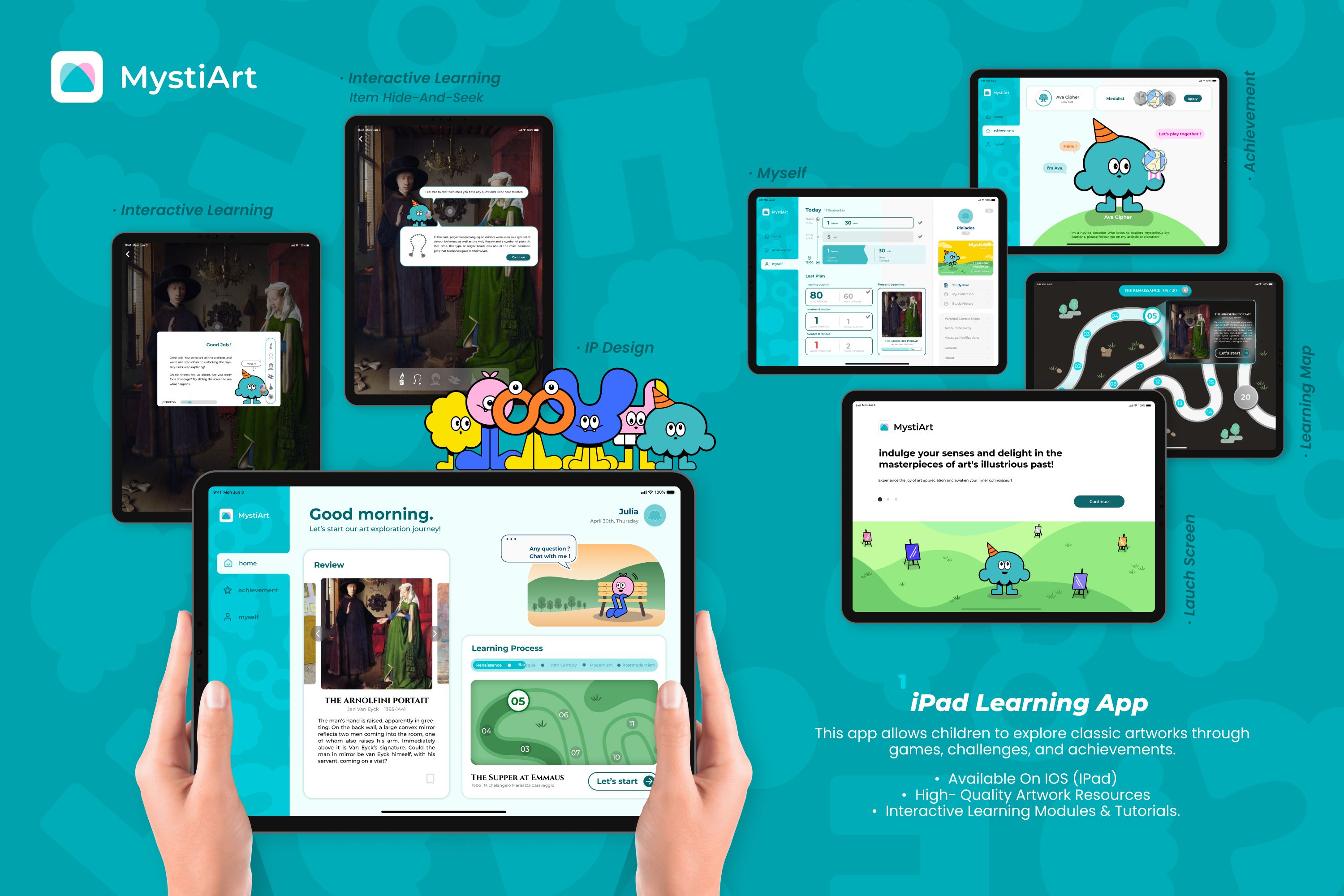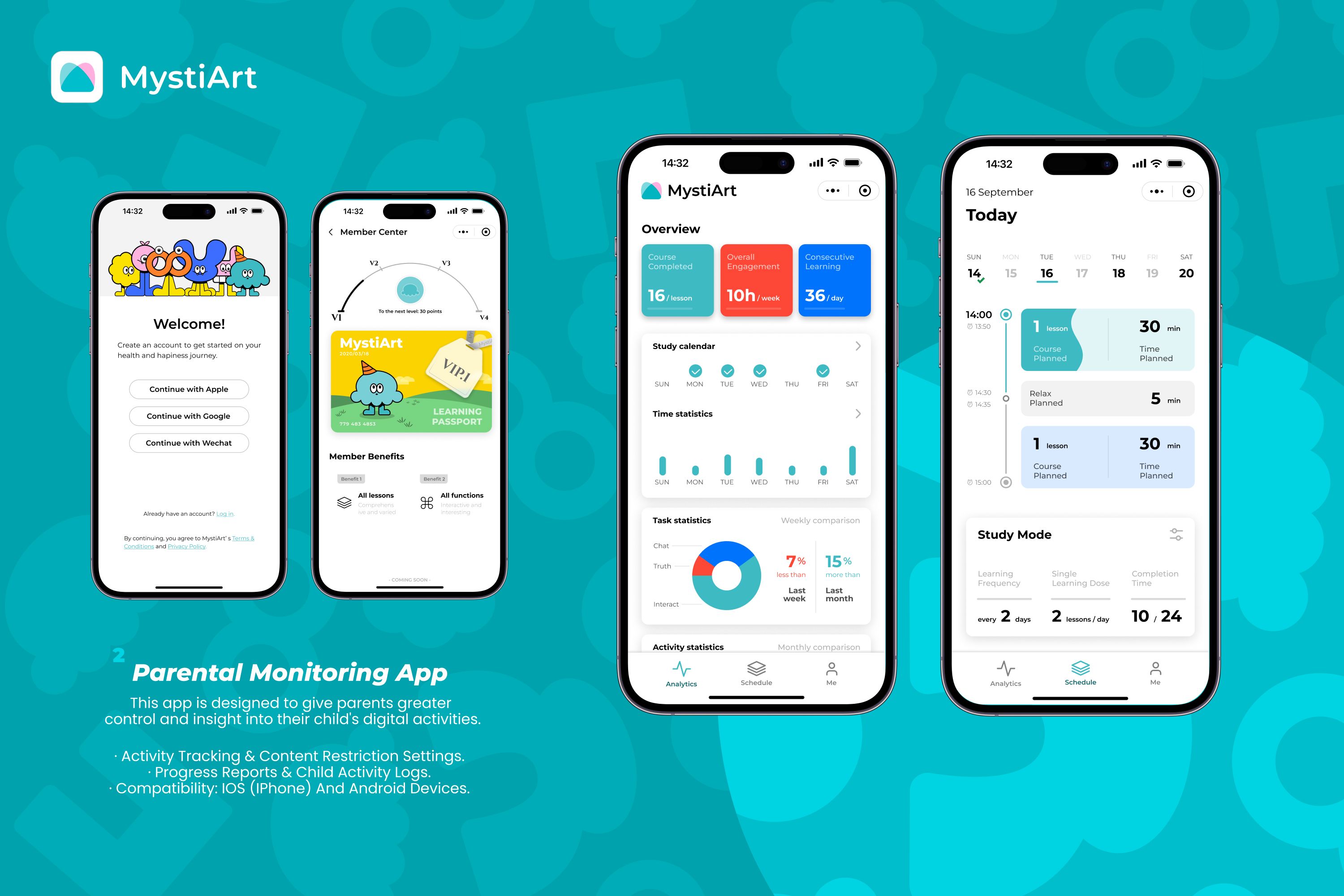
Designers
Yixin Zhu, Ruoyu Li, Siwen Wang
Year
2025
Category
New Talent
Country
China
School
Dalian University of Technology
Teacher
Yuzhen Li, Dan Li

Three questions to the project team
What was the particular challenge of the project from a UX point of view?
The particular UX challenge was designing an experience that not only balances engagement and education for children but also ensuring accessibility and usability for parents. For children, the app needed to explain complex art concepts into interactive, gamified activities that are intuitive and enjoyable without oversimplifying the educational value. Designing interactions like adjusting colors or lighting required a tactile, child-friendly interface that fosters creativity while teaching art principles. For parents, the challenge was creating a companion app that provides meaningful insights into their child's progress. Bridging these two user groups meant developing distinct yet complementary interfaces that work seamlessly together.
What was your personal highlight in the development process? Was there an aha!-moment, was there a low point?
We spent an amount of time exploring the design direction. Initially, we focused on fostering aesthetic among middle school students. However, through design research, we discovered that children in this age group often already have relatively fixed aesthetic preferences, making it more challenging to influence their appreciation through design. This realization led to a pivotal moment when we identified children aged 6-12 as a much more suitable user group. At this age, children's cognitive and behavioral development is highly conducive to cultivating habits of creative thinking. Therefore, we concluded that it is essential to prioritize understanding the characteristics of the target user group.
Where do you see yourself and the project in the next five years?
I envision the project growing into a multi-faceted system integrating not only gamified learning but also partnerships with museums, schools, and educational organizations as well in five years. The product will continually evolve with advanced technologies like AI and AR to create more immersive experiences. For myself, I hope to become a contributor to the development of innovative educational products, expanding my expertise in user-centered design and technology integration. I see MystiArt becoming a case study in how thoughtful design can bridge cultural education and modern technology, inspiring similar projects in other fields of learning.


